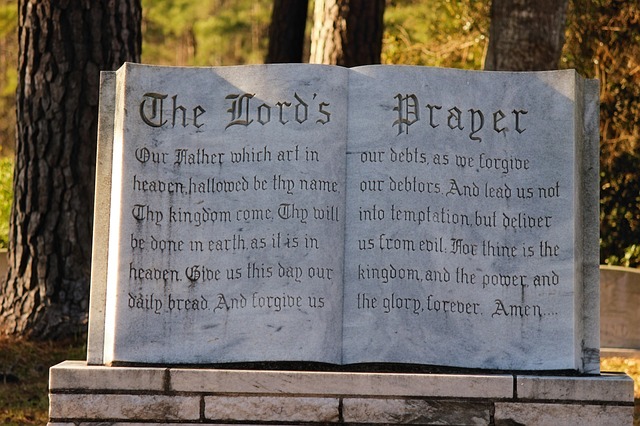‘Can I trust God to give me good things I ask for?’
In an important section on prayer in Luke’s Gospel Jesus responded to his disciples’ question to teach them to pray with what we call The Lord’s Prayer (Luke 11:2-4). He then anticipated two questions we have: 1. ‘Can God be trusted to answer our prayers?’ 2. ‘Can we trust him to give us good things?’
In response to our first question Jesus told a parable, sometimes called The Friend at Midnight (Luke 11:5-8). The parable has an underlying, unspoken question: ‘Can you imagine…?’ In this case, Jesus was asking, ‘Can you imagine a man speaking this way to a needy friend?’
HONORING GOD’S NAME
The story captures village life in Jesus’ world where hospitality is an unwritten law: No matter the hour or the inconvenience, neighbors are required to assist one another when they are in need. If they don’t provide assistance, they bring dishonor to their own name and the name of the community. ‘Can you imagine,’ Jesus is asking, ‘Anyone saying to a neighbor in need, even at midnight, ‘Get lost’, ‘Don’t disturb me’? The response would be a unanimous, “No!”
Translations since the 12th century have not helped us understand this parable. In recent times scholars such as J. Jeremias have recognized that the original words usually translated boldness or persistence do not reflect the meaning of the original word. Indeed, Kenneth Bailey has pointed out that the word is better translated, sense of shame. The original word literally carries the meaning, avoidance of shame.
The Middle-Eastern culture of hospitality (which still prevails), the flow of the personal pronoun he in Luke 11:8, and the narrative impact of the story, lead us to the sleeper in bed as the focus of the story. The focus is not the man knocking on the door.
This is not a parable about persistence. Rather it is a parable about God and the honor of God’s name. The parable picks up words Jesus taught us to pray: “Hallowed be your name” (11:2). To pray for the honor of God’s name is also consistent with the heart of Moses’ prayer in Numbers 14:13-19). The theme of persistence in prayer is found in another parable (Luke 18:1-8).
Jesus promises that God, for the sake of the honor of his name, will not only hear our prayers, no matter how big or small, but he will also answer them. God’s honor and integrity are at stake. We can trust God to hear and answer our prayers.
Jesus continues with three exhortations and promises: “Ask, and it will be given you; seek, and you will find; knock, and it will be opened for you” (11:9-10). Our English word ‘Ask’ forms a mnemonic for these wonderful promises that we all too often overlook – they apply just as much to God’s people as to genuine enquirers.
Often I have encouraged people who find it difficult to believe to say, ‘God, if you are there, please help me to find you’.
CAN I TRUST GOD TO GIVE ME GOOD THINGS?
Jesus also answers another question we often have: ‘Can I trust God to give me good things?’
He uses two metaphors to assure us that God always has our best interests at heart (Luke 11:11-12). We can paraphrase his assurance this way: ‘Just as the most violent thief can be kind to his son and the most mercenary-minded father can be generous to his daughter, “How much more will the heavenly Father give the Holy Spirit to those who ask him?” (11:13).
This must be one of the most profound promises that Jesus utters. He is telling us that God’s great gift is to give us his Spirit who will open our minds to hear God’s voice through his Word. The Spirit will open our hearts to God, enabling us to call God ‘Father’ through the Lord Jesus Christ. The Spirit will open our lives to God, empowering us to trust him and follow him.
When we think about it, we are introduced here to the riches of God’s work: we can call God, Father; we learn from the Son who does all that is necessary for us to right our relationship with God once and for all time; we are drawn into the riches of a profound and true relationship with God through the wonderful gift of the Spirit.
Why is it that we are content to play around the edges of a relationship with God who delights in giving his all for us? Why is our prayer life so often barren?
© John G. Mason


